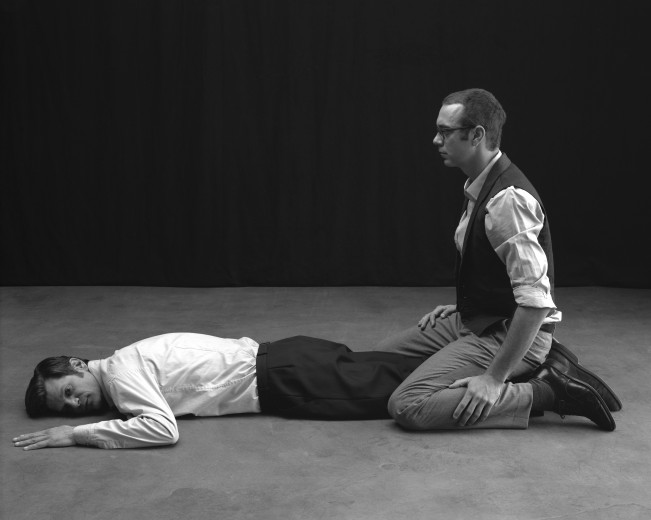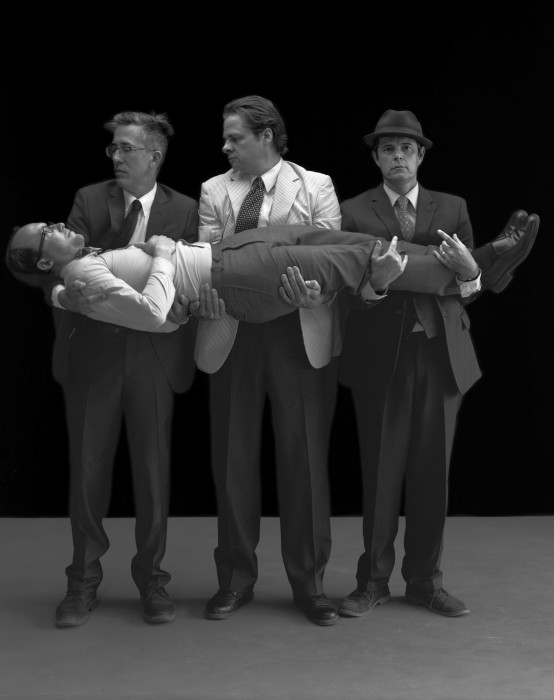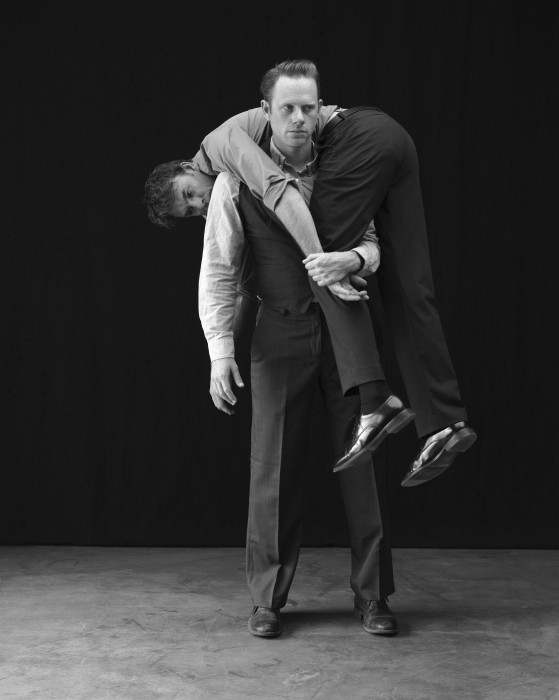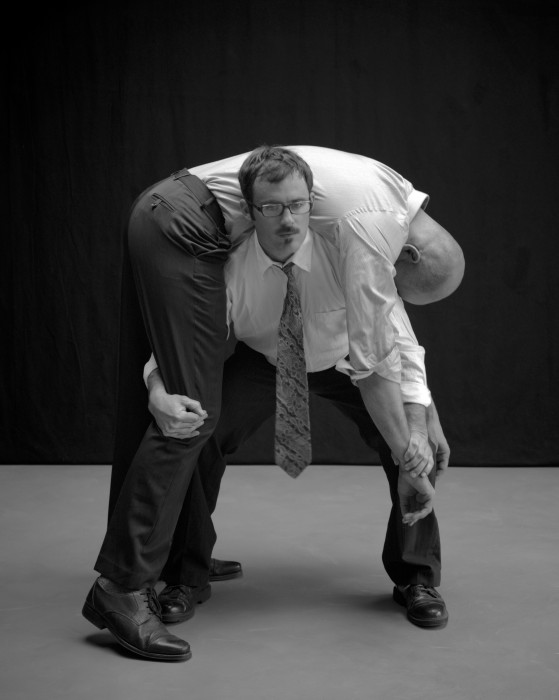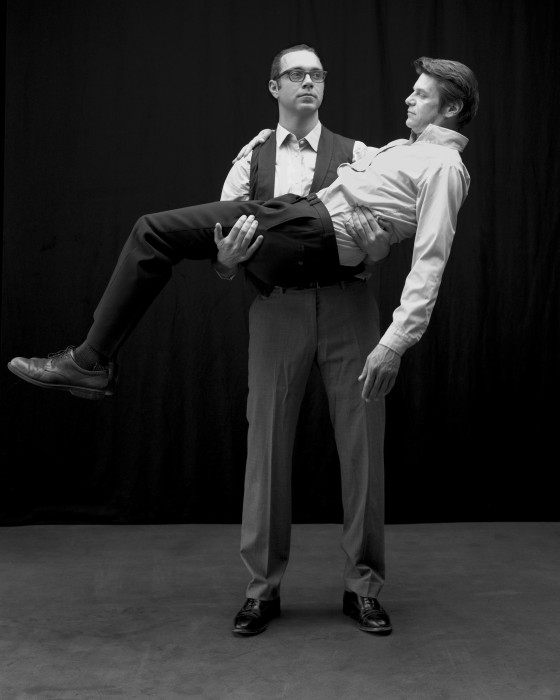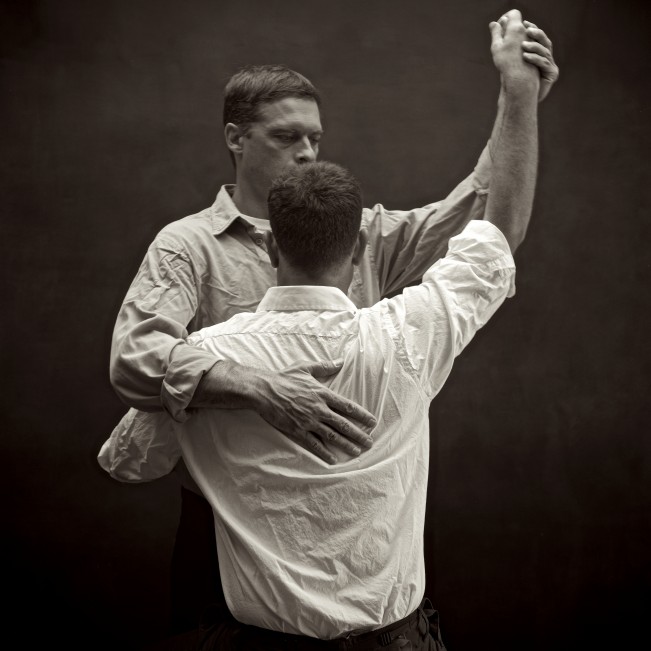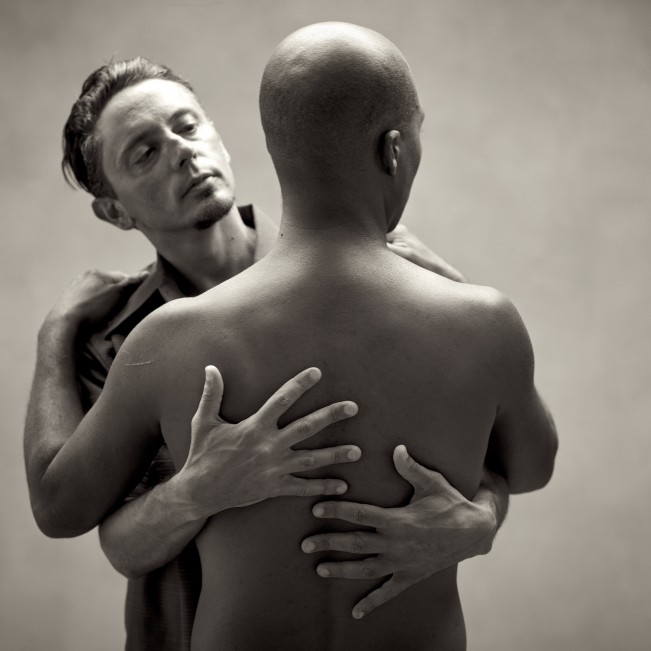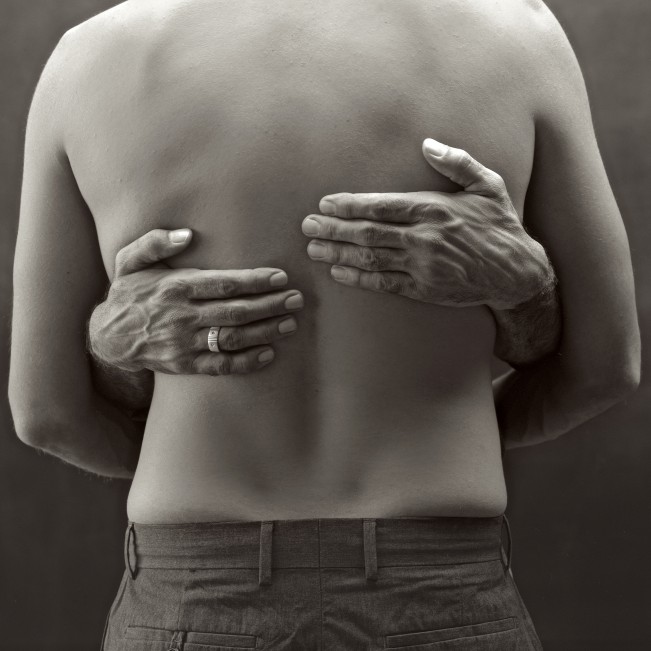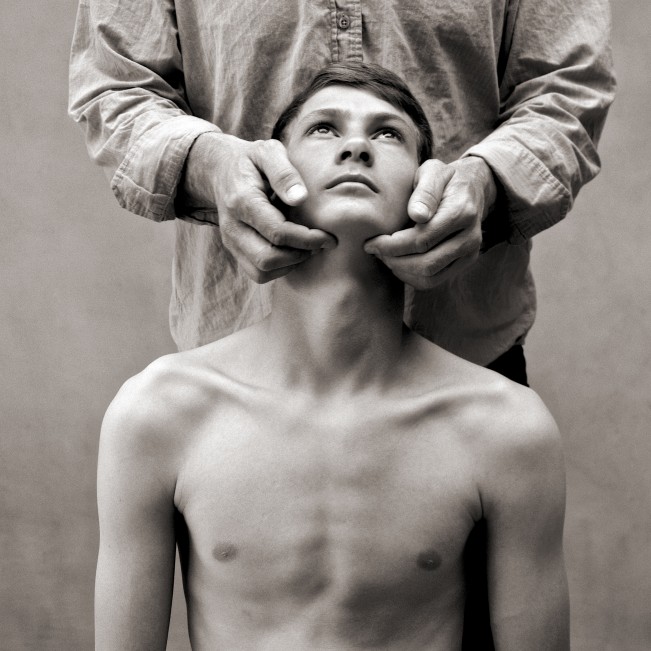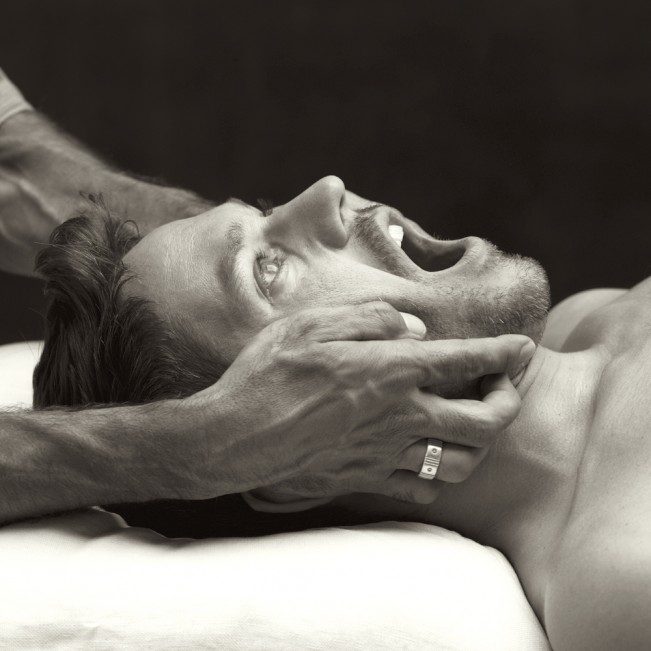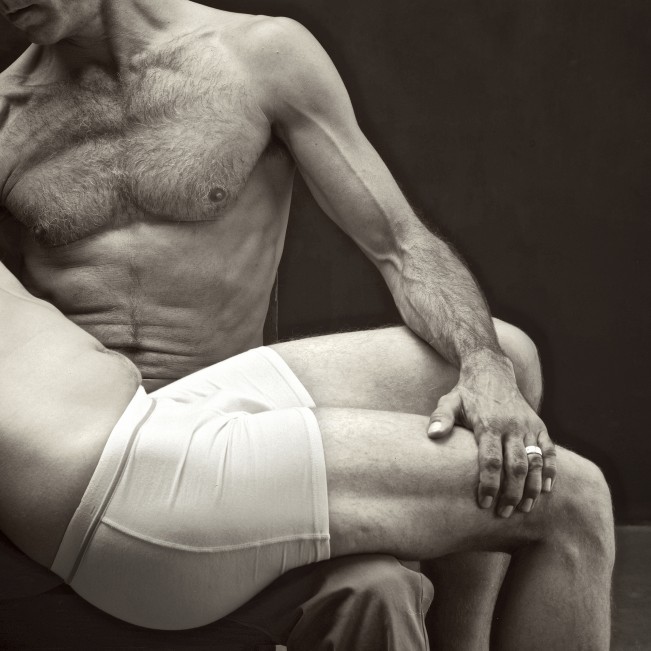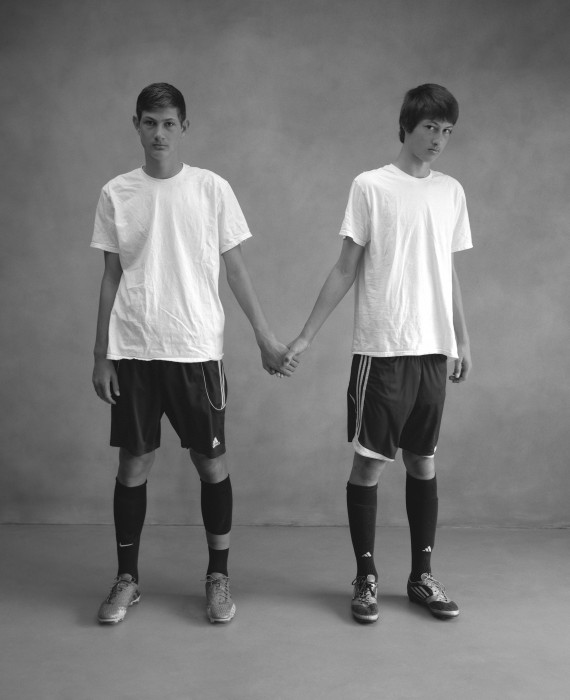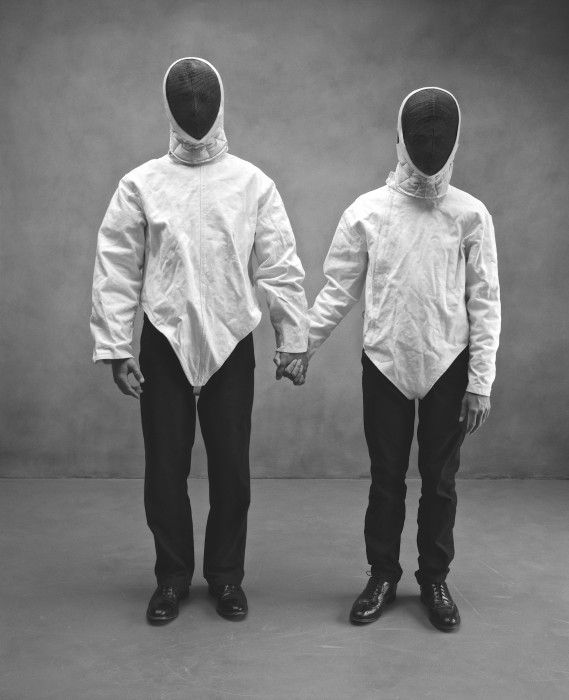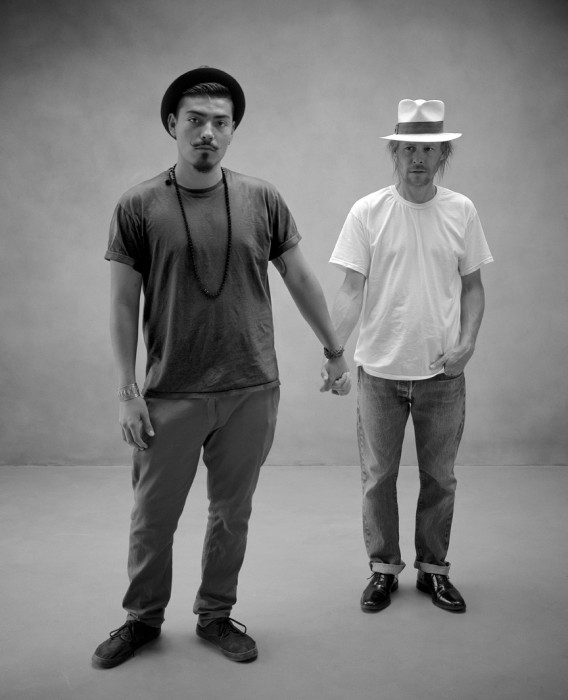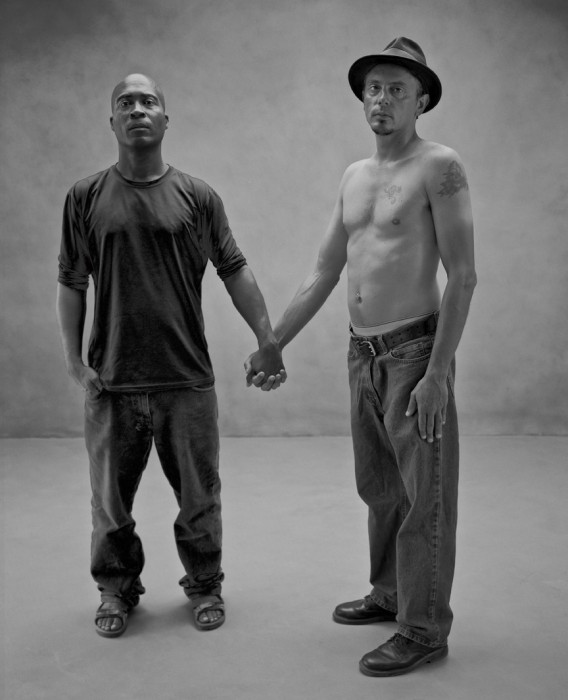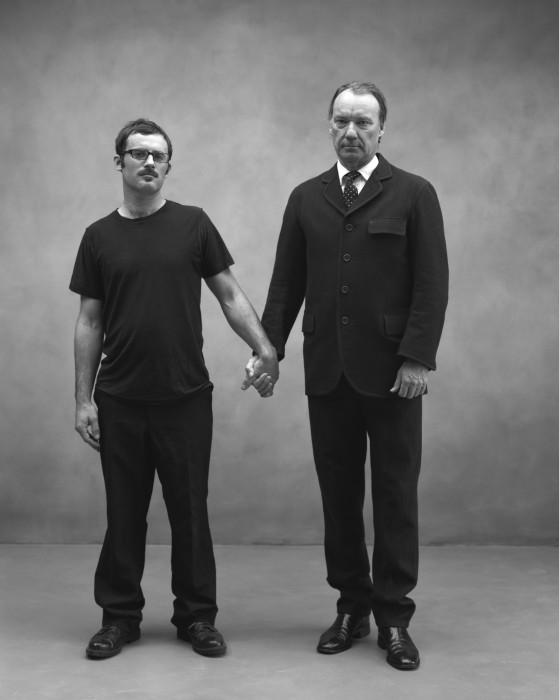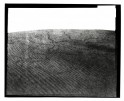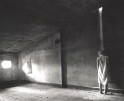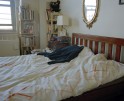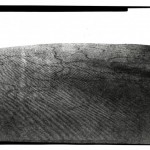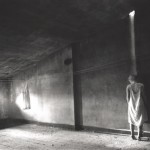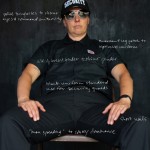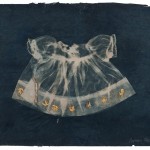Zoë Zimmerman: Of Men: Strength and Vulnerability
Zoë Zimmerman is a photographic artist who is examining male behavior, in particular, “touch” and platonic intimacy and how societal and cultural biases set the parameters for physical relationships.
Zoë was born in Manhattan, New York, and raised from an early age in Taos, New Mexico. Encouraged by an artistic family and community, she began taking photographs when she was quite young. Zoë graduated from high school at age 16. She then landed a job printing the life’s work of the late Lauren Gilpin at the Amon Carter Museum of Art under the tutelage of curator and author Martha Sandweiss. She worked there for a year and was then was accepted to the Rhode Island School of Design. Her time there was spent in nearly constant conflict with her professors. She graduated by the skin of her teeth in 1986, with a BFA in photography.
Directly out of college, Zoë began showing her work. She immersed herself in antique photographic processes. She produced platinum print portfolios for Aaron Siskind and albumen prints of her own work. Through the use of large format cameras and alternative processes, she honed her skills as a fine art photographer. Zoë returned to New Mexico in 1990 where she embraced a life of creativity, family and strong community. Since then she has shown her work consistently and has striven for a balance between art-making and parenting. This dynamic and it’s graceful execution informs her life and her work to this day.
Zoe’s work is in the collections of The Museum of Modern Art, The Museum of New Mexico, The Harry Ransom Center for the Humanities, and many other public and private collections. She is represented by The Photo Eye Gallery in Santa Fe, New Mexico.
OF MEN: A Photographic Study
I believe that men, particularly in American society, suffer from an unconscious bias against displays of platonic male affection. Men are uncomfortable in physical contact with each other unless that contact is aggressive. There is a pervasive pattern of touch isolation. It is rare that we see imagery of men engaged in nurturing physical contact with one another. Is this because masculine touch is most often interpreted as inherently sexual? Who is an adult male allowed to comfortably touch? Whether this paradigm is the cause of rampant homophobia or vice versa is unanswerable. My intention with the photographic study “Of Men” is to shine a light on this archetype; to raise the question rather than answer it.
The first group of pictures are direct re-enactments of the illustrations from a 1930s Red Cross First Aid manual. They are literally images of men helping each other in situations of physical vulnerability. The men, though physically engaged, display (through facial expression and body language) no outward sign of intimacy. The photographs are of men engaged in “appropriate” touch; touching but remaining isolated.
The second group, though still derived from vintage medical texts, displays more physical involvement, more caring. There is an emphasis on direct touch, more hand on skin. In this tier of the work the contact is intimate while remaining outside the realm of the erotic. It aims to define a possible fearless closeness of men that is not homosexual or sexual at all. It is not so much a definition of how American men interact physically but perhaps a fantasy or projection of how they could.
The series of portraits in the third section – men holding hands – illustrates society’s subconscious prejudice against fraternal physicality. The act of joining these men through the clasp of their hands evokes feelings that may be awkward, or at times even shameful. In some, the inherent power struggle is subtly apparent; in all of them the contact is compelling. It is not my intention with these images to describe a fantasy of an America where men feel comfortable holding hands so much as to display clearly a view of the reality that they do not.
Group 2
Group 3
Posts on Lenscratch may not be reproduced without the permission of the Lenscratch staff and the photographer.
Recommended
-
Jonathan Silbert: InsightsFebruary 19th, 2026
-
Olga Fried: Intangible EncountersFebruary 18th, 2026
-
Anne McDonald: Self-PortraitsFebruary 17th, 2026
-
Review Santa Fe: Leslee Broersma: Tracing AcademiaFebruary 11th, 2026
-
Review Santa Fe: Ilana Grollman: Just Know That I Love YouFebruary 10th, 2026

